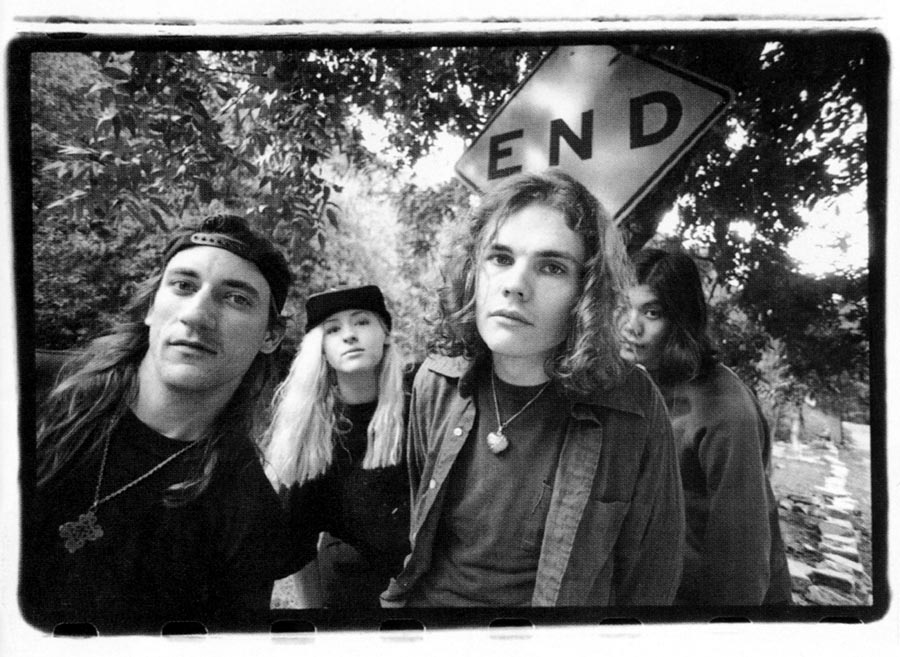Biography: Smashing Pumpkins

One of the most interesting bands of the nineties, The Smashing Pumpkins have had their share of success and turmoil. Centered around front man Billy Corgan, the alternative rock band has gone through multiple breakups, and several band members. The longest mainstay, drummer Jimmy Chamberlain, left the group in 1999.
Formed in Chicago in 1988, the original four members included Corgan and Chamberlain, as well as lead guitarist James Iha and bassist D’arcy Wretzky. Known for their complex arrangements, their incredible amount of layers of music in their studio versions of songs, and Corgan’s unique vocals, the Smashing Pumpkins took the music industry by storm in the early to mid-1990s.
In 1991, the Smashing Pumpkins released their debut album, Gish, to little commercial success, but to great critical acclaim. “Rhinoceros” may be the standout track from the album, but the beautiful arrangements of the slower “Crush” and “Snail” are some of the finest works the band has ever produced.
Two years later, the Pumpkins reached mainstream appeal with Siamese Dream, which would end up selling more than four million albums in the U.S. Siamese Dream brought out a variety of styles, including the poppy “Today,” the hard rocker “Cherub Rock” and the acoustic “Disarm,” all of which achieved heavy airplay.
The band reached its pinnacle in 1995 with the release of the double album, Mellon Collie and the Infinite Sadness. Yet another critically acclaimed album, Mellon Collie put the band on top of rock with their biggest hit, “1979.” Other hits off the album included “Bullet with Butterfly Wings,” “Zero” and “Tonight, Tonight.” The band became well-known for their great music videos full of special effects, with “Tonight, Tonight” winning several awards, including Video of the Year at the 1996 MTV Music Awards.
In 1996, the Smashing Pumpkins let go of Chamberlain, after a major heroin scare in which Chamberlain and keyboardist Jonathan Melvoin overdosed on the drug, and Melvoin died. The band went on with a more experimental sound with Chamberlain one, with most of their music being electronic. After releasing the single “The End is the Beginning is the End” for the "Batman and Robin" soundtrack, the Pumpkins released Adore in 1998 to much less sales and critical acclaim.
Chamberlain would return for the 2000 album, Machina/The Machines of God. Wretzky left the band before the album, and was be replaced on tour by Melissa Auf der Maur. However, the band would break up shortly after, and would self-release Machina II/The Friends & Enemies of Modern Music. Corgan and Chamberlain would remain a duo in the years to come, forming the group Zwan to limited success.
Get The Pick Newsletter
All the latest guitar news, interviews, lessons, reviews, deals and more, direct to your inbox!
In 2005, the Smashing Pumpkins announced that they were reuniting, although without Wretzky and Iha. Corgan and Chamberlain remained, while adding touring guitarist Jeff Shroeder and touring bassist Ginger Reyes. The band released Zeitgeist in 2007 to mediocre acclaim. The album received strong airplay off the singles “Tarantula” and “That’s the Way (My Love Is).”
Chamberlain would leave the band in 2009, and Corgan continued to carry on the Smashing Pumpkins name. The Pumpkins went on to release an on-going 44-track album, Teargarden by Kaleidyscope, and are working on their upcoming album, Oceania.
“The main acoustic is a $100 Fender – the strings were super-old and dusty. We hate new strings!” Meet Great Grandpa, the unpredictable indie rockers making epic anthems with cheap acoustics – and recording guitars like a Queens of the Stone Age drummer
“You can almost hear the music in your head when looking at these photos”: How legendary photographer Jim Marshall captured the essence of the Grateful Dead and documented the rise of the ultimate jam band










